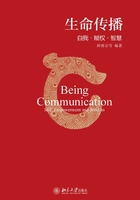
第四章 Prometheus Unbound——The Rebirth of Tragedy out of the Spirit of Technology
Jos de Mul
Does the tragic conception of fate still hold any relevance for us?Can classical Greek tragedy still speak to us if we turn to it in an attempt to understand the human condition in the light of the technological culture that has established itself worldwide?Or is it doomed to remain for(post)modern man an echo of a world that has become totally alien?In Die Geburt der Tragödie aus dem Geiste der Musik(1872)Nietzsche states that classical tragedy had already become completely unintelligible to Socrates and Plato.[108]It is therefore not so strange that George Steiner nearly a hundred years later, and like Nietzsche with an undertone of regret, in his The Death of Tragedy has proclaimed that the era of tragedy is definitely behind us.[109]Oudemans en Lardinois too argue in their Tragic Ambiguity.that we have lost access to the tragic.It constitutes“a gap in our cosmology, which neither has the power topass tragedy on nor to eliminate it”.[110]These analyses of the exact reasons for the death of tragedy diverge in many respects;yet all agree in taking the view that the death of tragedy is marked by the transition from mythos to logos.Tragedy was killed by a fatal overdose of technical rationality and optimism.
What I shall defend in the following is the opposite view. I will argue that tragedy still does have something to tell us, and now perhaps even more than during the many centuries that separate us from its historic heyday in the 5th century BC.In(post)modern society the tragic reveals itself again and pre-eminently within the domain in which we thought fate had been abolished.It's precisely in(post)modern technology that we are witnessing the rebirth of the tragic.As(post)modern culture is considerably different from the Greek culture that gave us tragedy, inevitably this is a repetition with a difference—but nevertheless a repetition, and therefore the more fateful.
My argument consists of four parts. First I will illuminate Steiner's thesis about the death of tragedy in Christian and modern culture.Next I will discuss Aeschylus'tragic conception of technology by focusing on his Prometheus Bound.Third, I will argue, in a critical discussion with Nietzsche, why the rebirth of tragedy has not taken place in art, as Nietzsche's romantic preoccupation with art led him to hope.The rebirth of tragedy, I will argue in the final part of this article—connecting with the largely lost sequel Prometheus Unbound—rather takes place in the realm of technology.In(post)modern culture technology has become the true locus of tragedy.